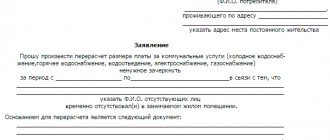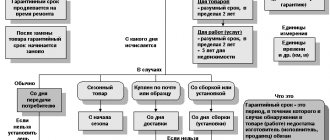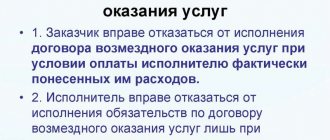Consumer rights: who is a consumer, and by what signs can you recognize him?
When consumer rights are considered, the main actor is himself. But few can define the concept in question. According to the current situation, a consumer is a person who orders services or buys goods and uses them for various purposes. Provided that the goals in question do not relate to entrepreneurship. In order for a person to call himself a consumer, he must meet certain criteria:
- Be an individual;
- Intentionally make a purchase of goods, work, services;
- Interact with the seller, performer or manufacturer;
- Use the product or service solely for personal purposes.
If you meet the above criteria, you can call yourself a consumer.
Consumer rights to quality
Consumer law states that people can expect that a product or service will meet the standards of quality and performance stated to the consumer. Even the absence of a specific description of quality does not exempt us from the parameters under consideration.
If a product contains unspecified defects, this may be a cause for dissatisfaction. It will be returned, and the seller will have to return the money, compensate for the losses caused by the purchase, pay for moral damages, and also pay a penalty. A consumer who has received a poor-quality service has exactly the same rights.
So, the consumer’s right to quality means the following:
- Must receive repairs and maintenance.
- If a low-quality product is presented, it must be replaced with a high-quality analogue.
- Reduce the cost of the product in proportion to the shortcoming that the consumer noticed.
- Remove defects in products sold for free.
- Refuse to sign the contract and return the money that was paid.
Do you have any complaints about the quality of work? The consumer will be able to ask the workers to fix the defects free of charge or charge a lower fee for the procedures performed.
Regulatory acts on the protection of consumer rights
Regulatory and legal acts on consumer issues
- Constitution of the Russian Federation
- Civil Code of the Russian Federation
- Law of the Russian Federation dated 02/07/1992 No. 2300-1 “On the protection of consumer rights”
Sphere of trade
- Federal Law of January 2, 2000 No. 29-FZ “On the quality and safety of food products.”
- Federal Law of December 27, 2002 No. 184-FZ “On Technical Regulation”.
- Federal Law of November 22, 1995 No. 171-FZ “On state regulation of the production and circulation of ethyl alcohol, alcoholic and alcohol-containing products.”
- Decree of the Government of the Russian Federation of January 19, 1998 No. 55 “On approval of the rules for the sale of certain types of goods, a list of durable goods that are not subject to the buyer’s requirement to provide him with a free supply for the period of repair or replacement of a similar product, and a list of non-food products of adequate quality , which cannot be returned or exchanged for a similar product of a different size, shape, size, style, color or configuration.”
- Decree of the Government of the Russian Federation dated 06.06.1998 No. 569 “On approval of the rules for commission trade in non-food products.”
- Decree of the Government of the Russian Federation dated July 21, 1997 No. 918 “On approval of the rules for the sale of goods based on samples.”
- Decree of the Government of the Russian Federation dated September 27, 2007 No. 612 “On approval of the Rules for the sale of goods remotely.”
- Decree of the Government of the Russian Federation dated June 16, 1997 No. 720 “On approval of the List of durable goods, including components (parts, assemblies, assemblies), which after a certain period may pose a danger to the life and health of the consumer, cause harm to him property or the environment and for which the manufacturer is obliged to establish a service life, and a list of goods that, upon expiration of the shelf life, are considered unsuitable for their intended use"
- Decree of the Government of the Russian Federation of August 15, 1997 No. 1037 “On measures to ensure the availability of information in Russian on non-food products imported into the territory of the Russian Federation.”
- Decree of the Government of the Russian Federation dated April 23, 1997 No. 481 “On approval of the list of goods, information about which must contain contraindications for use in certain types of diseases.”
- Decree of the Government of the Russian Federation of November 10, 2011 No. 924 on approval of the list of technically complex goods.
Scope of service provision (work performance)
- Decree of the Government of the Russian Federation dated August 15, 1997 No. 1036 “On approval of the rules for the provision of public catering services.”
- Decree of the Government of the Russian Federation of August 15, 1997 No. 1025 “On approval of the rules of consumer services for the population in the Russian Federation.”
- Decree of the Government of the Russian Federation dated October 9, 2015 No. 1085 “On approval of the rules for the provision of hotel services in the Russian Federation.”
- Decree of the Government of the Russian Federation of November 17, 1994 No. 1264 “On approval of rules for film and video services to the population.”
- Decree of the Government of the Russian Federation dated August 6, 1998 No. 898 “On approval of the rules for the provision of paid veterinary services.”
- Decree of the Government of the Russian Federation dated April 11, 2001 No. 290 “On approval of the Rules for the provision of services (performance of work) for the maintenance and repair of motor vehicles.”
- Decree of the Government of the Russian Federation of November 17, 2001 No. 795 “On approval of the rules for the provision of parking services.”
- Decree of the Government of the Russian Federation dated October 4, 2012 No. 1006 “On approval of the Rules for the provision of paid medical services by medical organizations.”
- Decree of the Government of the Russian Federation of August 15, 2013 No. 706 “On approval of the rules for the provision of paid educational services.”
Housing and communal services
- Housing Code of the Russian Federation
- Decree of the Government of the Russian Federation dated May 6, 2011 No. 354 “On the provision of utility services to owners and users of premises in apartment buildings and residential buildings”
- Decree of the Government of the Russian Federation dated August 13, 2006 No. 491 “On approval of the Rules for the maintenance of common property in an apartment building and the Rules for changing the amount of fees for the maintenance and repair of residential premises in the case of the provision of services and performance of work on the management, maintenance and repair of common property in an apartment building of inadequate quality and (or) with interruptions exceeding the established duration"
- Decree of the Government of the Russian Federation dated February 10, 1997 No. 155 “On approval of the rules for the provision of services for the removal of solid and liquid household waste”
Tourist services
- Federal Law of November 24, 1996 No. 132-FZ “On the fundamentals of tourism activities in the Russian Federation”
- Decree of the Government of the Russian Federation dated July 18, 2007 No. 452 “On approval of the rules for the provision of services for the sale of tourism products”
Communication services
- Federal Law of June 18, 2003 No. 126-FZ “On Communications”
- Decree of the Government of the Russian Federation dated December 9, 2014 No. 1342 “On the procedure for providing telephone services”
- Decree of the Government of the Russian Federation of January 23, 2006 No. 32 “On approval of the rules for the provision of data transfer services”
- Decree of the Government of the Russian Federation of November 1, 2001 No. 759 “On approval of the rules for the distribution of periodicals by subscription”
- Decree of the Government of the Russian Federation dated 06.06.2005 No. 353 “On approval of the rules for the provision of wired radio broadcasting communication services”
- Decree of the Government of the Russian Federation dated September 10, 2007 No. 575 “On approval of the Rules for the provision of telematics Charter for road transport and urban ground electric transport”
- Decree of the Government of the Russian Federation dated February 6, 2003 No. 72 “On approval of the rules for the provision of services for the transportation of passengers, luggage, cargo, cargo for personal (household) needs in inland water transport”
- Decree of the Government of the Russian Federation dated March 2, 2005 No. 111 “On approval of the rules for the provision of services for the transportation of passengers by rail, as well as cargo, luggage and cargo luggage for personal, family, household and other needs not related to business activities”
- Decree of the Government of the Russian Federation dated February 14, 2009 No. 112 “On approval of the rules for the transportation of passengers and luggage by road transport and urban ground electric transport”
Share building
- Federal Law of December 30, 2004 No. 214-FZ “On participation in shared construction of apartment buildings and other real estate and on amendments to certain legislative acts of the Russian Federation”
Financial services and insurance
- Federal Law of December 2, 1990 No. 395-1 “On Banks and Banking Activities”
- Law of the Russian Federation of November 27, 1992 No. 4015-1 “On the organization of insurance business in the Russian Federation”
- Federal Law of December 21, 2013 No. 353-FZ “On consumer credit
Consumer rights to safety
Consumer rights necessarily include ensuring safety. And not only the health of the consumer, but his property and the environment. In other words, the consumer can expect that the product or service will not cause him harm. These requirements are enshrined in acts that are in force in the region.
If safety standards are violated, the consumer has the right to expect that he will be compensated for losses and harm. It does not matter whether the damage was caused to health or property. Compensation occurs in addition to penalties and penalties, which are provided for in the contract or by law. You will also need to compensate for the resulting loss in the event of a recall of a product that threatens safety. In addition to this, the rights of the consumer of services also lie in still receiving the service in question at a decent level and in safe conditions.
Official website of the Supreme Court of the Russian Federation
Effective protection of consumer rights is crucial for the formation of a fair, transparent and competitive market in the Russian Federation, based, among other things, on the use of modern digital technologies. This is emphasized in the State Policy Strategy of the Russian Federation in the field of consumer rights protection for the period until 2030, approved. By order of the Government of the Russian Federation of August 28, 2021 No. 1837-r. In the context of economic instability caused by the spread of the new coronavirus infection, consumer protection issues have become particularly important. Therefore, the state is developing new mechanisms to counter emerging risks.
The priority areas that turned out to be the most vulnerable in terms of consumer rights violations during the pandemic include the following:
- banking and insurance;
- tourism and air transportation;
- housing and communal services sector;
- the field of online trading;
- medicine sales;
- cultural sphere (entertainment events).
It was these areas that primarily required the optimization of guarantees of consumer rights and the introduction of additional measures to protect these rights.
General risks and guarantees
The events of recent months caused by the pandemic (closure of borders and suspension of air traffic, slowdown in international trade, increased delivery times for goods, prolonged self-isolation of personnel in the trade and services sector, adaptation of business to changed working conditions after forced downtime, etc.) inevitably entailed a number of negative consequences for consumers. Rospotrebnadzor pointed to the following:
- postponement (failure) of deadlines for fulfilling orders or refunds in case of refusal of goods and services;
- bankruptcy of sellers, service providers or other counterparties;
- impossibility of collecting penalties or losses due to the recognition of COVID-19 as a force majeure circumstance.
At the same time, current legislation does not provide for the dependence of the level of guarantees to consumers on external conditions and does not imply the possibility of reducing this level during a pandemic. On the contrary, during this period the state tries to protect citizens from potential risks of violation of their rights and legitimate interests, for which it introduces additional mechanisms, some of which are temporary.
Let us recall that in Russia, guarantees for the protection of consumer rights are prescribed in the Civil Code, Law of the Russian Federation of February 7, 1992 No. 2300-I “On the Protection of Consumer Rights” (hereinafter referred to as the Law on the Protection of Consumer Rights) and other federal laws. International law also applies - for example, the Guidelines for the Protection of Consumer Interests (approved by the UN General Assembly on April 9, 1985), the Convention for the Unification of Certain Rules for International Air Transport of May 28, 1989, the Agreement on the Main Directions of Cooperation among the CIS Member States in the field of Consumer Protection of January 25, 2000 and the Treaty on the Eurasian Economic Union of May 29, 2014.
As the Chairman of the Supreme Court of the Russian Federation Vyacheslav Lebedev noted at the Forum of Chief Justices of the Supreme Courts of the BRICS countries “Protection of consumer rights in modern economic conditions” held on September 8, in accordance with the provisions of international legal acts in our country, consumer rights are guaranteed and protected to:
- acquisition of goods, works and services of appropriate quality;
- their safety for life, health, property and the environment;
- obtaining reliable information necessary for a competent choice in accordance with individual requests and needs;
- consumer protection education;
- state and public protection of these rights;
- association of consumers into voluntary public organizations.
These guarantees are woven with thin threads into many legislative acts at the federal level and are tightly bound by the legal knot of the Consumer Rights Protection Law.
Moreover, in accordance with the clarifications of the RF Armed Forces, the guarantees provided for by the Law on the Protection of Consumer Rights are provided not only to the first purchaser of a product or service, but also to his heirs, as well as other persons who subsequently legally acquired the right to the product or service. Lending and insurance
Due to the closure of most organizations during the spread of the new coronavirus infection, many Russians have difficulties making payments on loans and borrowings. Job loss, salary reductions, forced unpaid leave and other negative consequences of the introduced restrictive measures have led to the fact that people have no money to pay off previously taken out loans. Despite the fact that in the current conditions, banks themselves are actively meeting citizens halfway, postponing payment terms, reducing their size and using other acceptable measures, the state decided to separately support those borrowers whose income has decreased by more than 30% compared to the average monthly income for last year.
Federal Law No. 106-FZ of April 3, 2021 “On Amendments to the Federal Law “On the Central Bank of the Russian Federation (Bank of Russia)” and certain legislative acts of the Russian Federation regarding the specifics of changing the terms of a credit agreement, loan agreement" (hereinafter - Law No. 106-FZ) introduced the so-called credit holidays - a grace period providing for a deferment of repayment of the principal amount and payment of interest on credits (loans), including those secured by a mortgage. Consumers can take advantage of this benefit if they simultaneously meet the following conditions:
- the loan amount does not exceed the maximum amount established by the Government of the Russian Federation (for consumer loans to citizens - 250 thousand rubles, for car loans - 600 thousand rubles, for mortgage loans - 2 million rubles, for residential premises in Moscow - 4.5 million , St. Petersburg, Moscow region and constituent entities of the Far Eastern Federal District - 3 million rubles);
- the borrower’s income decreased by 30% or more in the month preceding the month of application, compared to the average monthly income for 2019;
- at the time the borrower applies for a credit holiday, mortgage holidays are not applied to the credit agreement (loan agreement) (Article 6 of Law No. 106-FZ).
Borrowers can apply for a credit holiday for up to six months until September 30 of the current year, while the Government of the Russian Federation has the opportunity to extend this period. The Bank of Russia emphasizes that lenders do not have the right to refuse to provide a grace period at the request of a borrower if he meets all established conditions and requirements. The service must be provided free of charge and no fees may be charged.
The Bank of Russia also recommended that all creditors, until September 30, suspend the forced eviction of a borrower from housing that had previously been foreclosed on by a court decision (regardless of when the court made such a decision). For the same period, housing savings cooperatives are advised not to evict shareholders, even if previously, due to their non-payment of contributions, a decision was made to evict (Information from the Bank of Russia dated April 4, 2021 “Measures to support citizens and the economy during the coronavirus pandemic”).
In turn, the portal yourfinance.rf (a joint project of the Russian Ministry of Finance and Rospotrebnadzor) also offered several ways to reduce the credit burden during the pandemic: refinancing (the possibility of obtaining a new loan on new terms to close the old one) or consolidation (combining up to five loans into one loan in one bank on more favorable terms); restructuring (revision and change of the terms of the current loan agreement, which most often relate to deferred payments, increasing the loan repayment period with a reduction in the monthly payment); credit holidays (deferment of repayment of principal and interest on loans for up to 6 months); mortgage holidays (an opportunity to reduce the financial burden, including if a difficult life situation arose due to the coronavirus pandemic, subject to the maximum mortgage loan amounts established by the Cabinet of Ministers).
Due to the sharp increase in the number of non-cash payments and online payment for purchases in the context of the spread of COVID-19 and in order to reduce consumer costs for online transfers, the Bank of Russia, from May 1, established a maximum value of commissions charged by banks from their clients for transfers between individuals. Thus, transfers in the Fast Payment System up to 100 thousand rubles. per month should be carried out without charging a fee, and transfers in the amount of more than 100 thousand rubles. per month - with a commission of no more than 0.5% of the transfer amount, but not more than 1.5 thousand rubles. (Information from the Bank of Russia dated March 20, 2021 “The Bank of Russia has approved measures to support citizens, the economy and the financial sector in the context of the coronavirus pandemic”).
No less important in terms of ensuring guarantees for the protection of the rights of consumers of banking and insurance services are the legal positions of the Armed Forces of the Russian Federation, expressed in resolutions of the Plenum and reviews of judicial practice in relevant cases. Key theses on this topic were voiced by Vyacheslav Lebedev at the BRICS Forum:
- The Law on the Protection of Consumer Rights applies not only to household goods and services, but also to financial services (this clarification allows citizens-insurers, depositors, borrowers and other consumers, in case of violation of their rights and legitimate interests, to demand not only compensation for losses, but also recovery penalties, fines and compensation for moral damage in accordance with the Law on the Protection of Consumer Rights);
- prohibition of imposing additional paid services on citizens - connecting the borrower to a life and health insurance program cannot be a prerequisite for providing a consumer loan (in particular, when connecting to such a program, the bank is obliged to inform the consumer not only about the nature of the insurance services provided and the procedure for their payment, but also on the borrower’s right to refuse to participate in the program, otherwise the consumer will be able to refuse the insurance service and demand compensation for losses);
- a consumer citizen has the right to file a claim against the bank to reduce the amount of the penalty under the loan agreement if it is disproportionate to the consequences of late payment of the loan;
- as a general rule, the debtor’s lack of necessary funds is not a basis for exemption from liability for failure to fulfill obligations, but in the context of countering the spread of COVID-19, the lack of funds from a citizen-borrower caused by restrictive measures may be recognized as a force majeure circumstance and a basis for releasing him from responsibility;
- consumers are released from pre-contractual liability, that is, from the obligation to compensate for losses caused by unfair actions during negotiations on concluding a contract.
Lebedev also cited statistics on court cases related to the provision of financial services - according to him, such disputes currently make up a significant share of the total volume of cases on the protection of consumer rights (246.6 thousand cases or 58%).
86% of claims in this category of cases were satisfied. As for insurance disputes involving citizens, the number of cases in this category in 2021 decreased by 40%. This was facilitated by the introduction of a pre-trial procedure for consideration of citizens' claims by the Commissioner for the Rights of Consumers of Financial Services. From January 1, 2021, the financial ombudsman will also consider citizens’ claims to credit institutions - if they disagree with its decision, the consumer will be able to go to court within 30 days from the date of this decision. Tourism and air travel
During the pandemic, consumers of tourism and air transportation services suffered no less than borrowers - their booked tours were cancelled, paid accommodation facilities were closed, and flights to foreign countries were temporarily prohibited. Many airlines have agreed on refunds or guaranteed rescheduling of bookings to future dates, provided bonus miles or other non-monetary compensation. Some tour operators have also agreed with travelers to reschedule the tour date at the exchange rate fixed at the time of purchase.
All problematic aspects of protecting the rights of consumers in the sphere of tourism services and air transportation were discussed in detail by Rospotrebnadzor in its memo. It contains advice for situations related to refusal:
- travel (if the contract is changed, the tourist and the tour operator can agree to postpone the travel date to a later date, and in case of termination of the contract, the consumer has the right to return the entire cost of the tour before the start of the trip, and after the start of the trip - part of it in an amount proportional to the cost of services not provided);
- independently booked flight (upon a consumer’s application for involuntary refusal of transportation due to the cancellation or change of a flight by the carrier, the passenger must be refunded the amount paid for transportation, and in case of refusal of transportation to destinations where no bans or restrictions on movement have been introduced, a refund can be demanded on the basis of Article 451 of the Civil Code of the Russian Federation with reference to significantly changed circumstances);
- hotel reservations on the websites of service providers and major booking services (the possibility of a refund depends on whether a refundable or non-refundable rate is used, you can also use chargeback - the procedure for canceling a transaction using cards of payment systems Visa, MasterCard, MIR), etc.
It is also worth taking into account the position of the RF Armed Forces, which believes that liability for harm caused to a passenger can be assigned not only to the carrier, but also to the aggregator, if, from the circumstances of the conclusion of the contract, a bona fide consumer could form the opinion that the contract of carriage is concluded directly with the aggregator.
To reimburse the cost of non-refundable tickets and compensate for the costs of exporting tourists, the Government of the Russian Federation allocated 3.5 billion rubles from the reserve fund. It is expected that the corresponding subsidies will allow tour operators to reimburse part of the costs and help fulfill obligations to tourists for canceled tours.
Housing and communal services
Taking into account the possible decrease in citizens' incomes during the period of restrictive measures and recognizing the special social importance of housing and communal services for consumers, the Government of the Russian Federation introduced a moratorium until January 1, 2021 on the accrual and collection of penalties for debts for housing and communal services. Collection of penalties (fines, penalties) is suspended in case of untimely payment of payment for residential premises, utilities and contributions for major repairs or payment in full. At the same time, a ban has been established on restricting the provision of utility services in case of late payment by citizens.
In addition, citizens receiving subsidies for housing and utility bills have had their right to receive these subsidies extended without additional confirmation if the subsidy expires between April 1 and October 1, 2021 (Information from the Federal Service for Surveillance on Consumer Rights Protection and human well-being dated May 15, 2021 “On the moratorium on payment for housing and communal services during the coronavirus pandemic”).
Online trading
The sphere of online trading was actively developing even before the pandemic, but during the spread of the new coronavirus infection, online sales of everyday goods have increased significantly. Since in most regions trading of any goods is allowed online, no changes to the legislation were required. But in order to ensure the protection of consumer rights, Rospotrebnadzor has released a number of information materials, recalling the basic rules for safe online shopping. In particular, the service drew the attention of consumers to the following:
- goods received with the condition of payment by cash on delivery, if for some reason the buyer is not satisfied with it, must be returned to the seller, while the burden of costs for returning the goods lies with the buyer (the buyer risks not receiving money for the returned goods);
- before purchasing in an online store, you should make sure that the website contains information about the seller’s details, including name, address, operating hours, OGRN/OGRIP;
- You should not transfer money for a purchase to an individual’s bank card; you need to ensure that after any payment the seller sends an electronic check to the buyer’s email address;
- When purchasing online, the buyer has the right to refuse the product at any time before its delivery, and after the delivery of the product - within 7 days, and if information on the procedure and terms for returning goods of proper quality was not provided in writing at the time of delivery of the product - in within 3 months from the moment of transfer of the goods (clause 21 of the Rules for the sale of goods by remote means, approved by Decree of the Government of the Russian Federation of September 27, 2007 No. 612);
- if a product is purchased through the website of the owner of an aggregator of information about goods, then a claim can be made to such aggregator owner if the consumer is provided with unreliable or incomplete information about the product or the seller, if the product is not delivered on time (Information from Rospotrebnadzor dated May 11, 2021 “On the features of online trading and cross-border purchases during the coronavirus pandemic").
To protect the rights of consumers purchasing goods and services on Internet sites registered in foreign countries and aimed at Russian consumers, the Plenum of the RF Armed Forces clarified that Russian legislation on the protection of consumer rights applies to the relevant legal relations.
A site aimed at Russian consumers is considered to be one in which one of its languages is Russian, prices are given in Russian rubles, contact numbers with Russian codes are indicated, or there is other similar evidence (paragraph 5 of paragraph 45 of the Resolution of the Plenum of the Armed Forces of the Russian Federation of July 9 2021 No. 24 “On the application of norms of private international law by the courts of the Russian Federation”). It is also worth remembering that over the past years, Russia has been actively introducing a mechanism for the traceability of goods by applying markings to them. For the convenience of users, a mobile application “Checking product labeling” has been launched, through which you can not only check the legality of the purchased product, but also report a violation. Consumers also have the opportunity to receive and store cash receipts electronically, check their legality, and report violations by the seller through the Russian Federal Tax Service application “Checking Cash Receipts.”
Sale of medicines
An important legal event occurred in the field of drug sales during the pandemic - the distance sale of drugs was legalized, because the ability to purchase them via the Internet under restrictive measures has become an urgent need for many consumers. However, for now the state has allowed only over-the-counter medicines to be sold online, securing the right of the Government of the Russian Federation in emergency situations and in the event of a threat of the spread of a disease that poses a danger to others, to establish a temporary procedure for the remote sale of certain prescription medicines.
In addition, it will not be possible to buy narcotic drugs and psychotropics via the Internet, as well as alcohol-containing drugs with a volume fraction of ethanol of more than 25% (for example, brilliant green, Valocordin, Corvalol, tinctures of valerian, propolis, echinacea, etc.).
A pharmacy organization wishing to carry out distance sales of drugs must have a license for pharmaceutical activities and obtain the appropriate permission from Roszdravnadzor (Part 1.1, Article 55 of the Federal Law of April 12, 2010 No. 61-FZ “On the Circulation of Medicines”).
According to the explanations of Rospotrebnadzor, when purchasing medicines online, the consumer has the right to:
- request from the pharmacy organization a copy of the declaration of conformity or certificate of conformity;
- returning medications to the pharmacy only if they are of poor quality or their sale was accompanied by the dissemination of inappropriate information (in particular, there was false advertising or an error in the description of the product on the seller’s website);
- send a low-quality drug for testing for compliance with the requirements of regulatory documentation to expert organizations accredited in the field of quality control of medicines, etc. (Information from Rospotrebnadzor dated May 1, 2020 “On purchasing medicines online during the coronavirus pandemic”).
Spectacular events
During the peak of the spread of the new coronavirus infection, entertainment and entertainment events were cancelled. In order to protect consumer rights, the Government of the Russian Federation has formed new rules for refunds for purchased tickets for those entertainment events (performances, concerts, excursions, etc.) that did not take place. The rules apply from April 14 of this year and provide for a special procedure for canceling, replacing or postponing a spectacular event held by a performing arts organization or museum in emergency situations, a high-alert regime (Resolution of the Government of the Russian Federation of April 3, 2021 No. 442).
In particular, organizations were required to post on their website information about the cancellation of entertainment events due to the introduction of a restrictive regime, and if they are postponed, to indicate the date and time of the event after the cancellation of the introduced regime, as well as information about the possibility of visiting it using a ticket previously purchased by the visitor .
If an event is cancelled, the purchaser may be offered the opportunity to attend the same or a different event once restrictions are lifted, or the full price of the ticket will be refunded. The refund period for a ticket, subscription or excursion package in case of cancellation or postponement of entertainment events in this situation is 30 days when the visitor contacts through the website where the tickets were purchased. When contacting the organization directly, funds must be returned on the same day.
Judicial protection of consumer rights
In recent years, the legislator has charted a course to minimize the number of trials in cases of consumer protection. For this purpose, in particular, a pre-trial appeal procedure is being introduced in many areas. The pre-trial settlement of disputes is also facilitated by the mandatory claims procedure for presenting claims - it operates, for example, in the field of transportation, communications and tourism services and implies the obligation of a citizen, before going to court, to send a pre-trial claim to the service provider, for consideration of which in the field of communications and transportation 30 days are allotted, in the field of tourism services - 10 days.
But for now, judicial protection of consumer rights remains the prevailing protection mechanism. Chairman of the RF Supreme Court Vyacheslav Lebedev also mentioned this. According to the data he provided, in 2021 the courts considered 428.8 thousand cases on the protection of consumer rights, consumer demands were satisfied in 85% of cases (363.1 thousand). Moreover, over the past 10 years, the number of cases in this category annually received by the courts has increased by 50% (from 286.6 thousand cases in 2010). Last year, more than 53 billion rubles were awarded in favor of consumer citizens. (in 2010 – 23 billion rubles). “Appealing to the court is a popular, effective and accessible way to protect consumer rights,” Lebedev concluded.
Let us recall that the protection of consumer rights in Russia is ensured by measures of civil, administrative and criminal proceedings. To ensure the unity of judicial practice, the RF Armed Forces constantly issues clarifications - the Plenum of the RF Armed Forces adopted 25 resolutions containing more than 400 legal positions on the consideration of this category of cases, and the Presidium of the RF Armed Forces 47 times addressed issues of consumer rights protection and approved Reviews systematizing more than 200 legal positions in this area.
Vyacheslav Lebedev, during his report, voiced some general guidelines for courts when implementing measures of judicial protection of consumer rights:
- the inadmissibility of a formal approach to the consideration of disputes involving consumers, the active role of the court in this category of cases, the need, at the initiative of the court, to raise for discussion by the parties the issue of compliance of their actions with the requirements of good faith, which equally apply not only to suppliers of goods and services, but also to consumers (the rights of a consumer who, in order to collect penalties and fines, deliberately prevented the voluntary satisfaction of his demands are not subject to judicial protection);
- provisions of civil law that give the court the right to reduce penalties and fines in cases of consumer rights protection can be applied only in exceptional cases when the defendant presents evidence of their obvious disproportion to the consequences of violation of the obligation;
- deadlines for performing procedural actions missed due to measures to counter the spread of coronavirus infection are subject to restoration in accordance with procedural legislation;
- eliminating the possibility of denial of judicial protection of consumer rights on formal grounds (in order to increase the accessibility of justice, consumer citizens are given the right, at their choice, to file a claim in court at the place of their residence, at the place of conclusion or execution of the contract, or at the location of the defendant);
- the existence of the right to apply to the courts to protect the rights of consumers, including consumer groups and an indefinite number of consumers, not only among authorized government bodies, but also among public associations of consumers, their associations and unions;
- the possibility of a citizen filing a claim in defense of the rights and legitimate interests of a group of persons (collective claim), including in connection with violation of legislation on the protection of consumer rights;
- application of the most favorable interpretation for the consumer when there are doubts regarding the interpretation of the terms of the contract and it is impossible to establish the actual common will of the parties;
- terms of the contract that infringe on the rights of the consumer in comparison with the rules established by law are void and are not applied by the courts, etc.
“Judicial protection of consumer rights is of great social importance, especially in a difficult sanitary and epidemiological situation, when citizens must be promptly provided with goods and services of adequate quality,” Lebedev concluded.
***
Effective protection of consumer interests is an important legal institution in socially oriented states. Issues of protecting consumer rights have always been a priority for legislators and law enforcers, and in unfavorable sanitary and epidemiological conditions that negatively affect the development of the market for goods and services, they have acquired particular social significance.
Russian legislation contains a sufficient array of norms that can provide the necessary level of protection of consumer rights and uniformity of judicial practice in this category of cases. And the legislator always promptly responds to modern threats of violation of consumer rights, as evidenced not only by the constant modernization of the provisions of the Law on the Protection of Consumer Rights (during its validity, 32 laws with amendments were adopted), but also by the adoption of by-laws, the issuance of recommendations and clarifications by authorized bodies aimed at resolving the most pressing issues and resolving controversial nuances in the relationship between consumers and manufacturers, performers and sellers.
Natalya Klyuchevskaya
Consumer rights to information
The Consumer Protection Law states that the consumer has the right to know comprehensive information about a product or service offered. Moreover, this data must be reliable, provided that it relates to the following:
- Consumer properties of the product, price, and purchasing rules.
- The period for which the guarantee is given, during which the product should serve, and also under what conditions it can be used.
- Who is the manufacturer, seller, license and other product identifiers.
- The time period within which claims can be made for detected deficiencies.
It is important that this information is presented in an accessible form. If the information was untrue and harm resulted, the transaction can be terminated and the consumer will receive compensation for losses.
Contact Rospotrebnadzor
Protecting consumer rights is the task of Rospotrebnadzor. Contacting a consumer protection can be very effective in negotiation processes and finding a compromise. Since, most likely, the seller committed some violations and his actions contain signs of an administrative offense.
So, the contract between you and the seller may contain conditions that are contrary to the law. This will be the basis for administrative liability. For example, for such offenses as provided for in the articles of the Code of Administrative Offences , such as violation of pricing procedures, consumer deception, violation of other consumer rights, administrative liability is provided.
If the seller is brought to administrative liability . This will only give you moral satisfaction. But you can receive a certain invoice and motivation for going to court.
Everything that I have written here is not intended to teach the consumer to abuse their rights or speculate on them. I assume that the seller, the person performing the work or providing the services, acts in good faith and honestly. But there are also unscrupulous performers, against whom we have protection in the form of provisions of the law on the protection of consumer rights.
Read my article on how to find a free lawyer?
Consumer rights to protection
Sometimes a voluntary procedure for analyzing a situation does not help, then consumer rights state that you can proceed with a compulsory procedure. Consumer protection states that you can go to court by choosing the branch at the place of residence, stay of the consumer, registration of an agreement or registration of an entrepreneur. If the requirements are not voluntarily fulfilled, the seller, at the initiative of the court, will not only have to compensate everything, but also pay 50% of the awarded amount as a penalty.
How to protect consumers from lawyers
– Admit it, is it good or bad for you that people go to court en masse? – There are both pros and cons. But I want to note: the law itself on the protection of consumer rights, which is an act of direct action and which establishes the corresponding mechanism, places emphasis not on the judicial, but on the pre-trial procedure for resolving disputes. The current configuration should encourage business entities to resolve issues without bringing the matter to court.
The latter is not at all beneficial for a business - the potential range of possible encumbrances that it may face even when considering a case in court is very wide. After all, it may turn out that the citizen’s demands will have to be satisfied on several new unexpected topics at once. Therefore, it is certainly better to negotiate with the consumer “onshore”. In general, on the business side, I’ll be honest, we often have an extremely low level of professionalism, legal culture and integrity. And the judicial picture reflects this.
– You have a lot of complaints about business...
“Perhaps the banking sector stands out from the crowd. As a rule, every organization here has a legal service, a clear systematic analysis of the requirements imposed on their business by government agencies, and a thorough analysis of judicial practice. And the tourism sector, for example, despite its seemingly “over-regulation”, every now and then turns out to be unprepared for critical situations. In general, what is important in this regard is not so much the legal level itself, but the ability to quickly solve emerging private problems.
– Are you hinting at the recent story with VIM-Avia?
– Yes, this is a very typical situation. It would seem that this is not the first time this has happened in the aviation sector, the mechanisms for getting out of the situation seem to be clear - but we still have a huge surge in consumer negativity. But it’s all in the little things: somewhere the passenger was not told something in detail, was not explained, did not pay attention to his requirements - and confrontations arise. We, of course, are working, trying to stop the situation, find a systemic solution to the issue... So, in other words, there is definitely a shortage of business responsibility to the consumer, and a considerable one.
- In general, you will start issuing fines again.
“We have never had an end in itself to fine someone, punish someone - and that’s all.” It is important to find ways to correct a configuration that is unfavorable for the consumer.
– Is construction still a problematic industry in terms of compliance with consumer rights? What do apartment buyers usually demand in their claims?
– This area, like the aforementioned banking sector, is very strictly structured from the point of view of legal regulation. If we are talking about shared construction, then a special law has been adopted, to which new norms are constantly being introduced. All measures of responsibility of the business to the buyer of the apartment are prescribed. It seems that there should be fewer and fewer violations. But legislators are still forced to create a “safety cushion” in the form, for example, of rules regarding defrauded shareholders - if the law still does not work. It would seem absurd, mutually exclusive things! But resource opportunities for protecting citizens are not created by chance; they are extremely necessary.
What problems arise most often in this business sector? Firstly, of course, failure to meet construction deadlines. Secondly, there are deficiencies that buyers identify. It is especially worth noting the long litigation on the subject of whether this or that fact is a defect in general. The buyer claims that it is blowing from the window, and the developer considers this a slander, and so on and so forth.
Consumer protection: how to defend your rights?
Consumer rights must be protected. To do this, you will have to follow a standard procedure that includes several steps:
- Establish that a violation actually occurred. Consumer rights will be protected when they are violated. Moreover, it is important to have evidence of violations. The Consumer Protection Act does not deal with unfounded accusations. A valid reason for claiming a violation of rights may be the expired shelf life of the product being sold, inappropriate size, defects, poor quality of service, etc.
- Go to the store and try to resolve the situation peacefully. Complaints must be presented politely. In many cases, employees will issue a refund or replacement. At this stage the conflict can end. And if it doesn’t work out, we move on.
- Write a written complaint. The consumer must make two copies, keeping one with him and giving the second to the store. A mark of acceptance is required, and evidence of its expediency is also attached.
- File a lawsuit. It is advisable if the seller does not respond to the complaint or is in no hurry to satisfy it. The plaintiff can choose which territorial court to submit documents to. Also, the consumer may not pay state duty. But only if the consumer’s rights were violated in an amount of no more than a million rubles.
The law on consumer protection will continue to apply. If the rights in question were actually violated, the court will be on the side of the consumer, and if not, it will protect the rights of the seller.
Agree on mutually beneficial terms
The law is strict towards the seller and loyal to the consumer . Protection of consumer rights is carried out within the framework of the law.
If your rights are violated, you can contact Rospotrebnadzor or the court.
Before going to regulatory or judicial authorities, it makes sense to contact the seller with a complaint and indicate your intention to seek protection of your rights. Most likely they will meet you halfway.
A case from practice: a person bought a sofa, the delivery time was significantly delayed. After the buyer wrote a written complaint to the seller, indicating his intention to go to Rospotrebnadzor and the court, they brought him another sofa at a big discount. The man was pleased. Naturally, this happened after the seller’s lawyers reviewed the claim and assessed the prospects for litigation.
The seller knows that the law protects the interests of the buyer and therefore understands the course of events.
In accordance with clause 3. Art. 23.1 of the Law on the Protection of Consumer Rights, in case of delay in delivery of goods, the violating seller for each day of failure to fulfill the obligation pays a fine in the amount of half a percent of the amount of the paid goods.
The fine is collected until the goods are transferred or until the consumer’s demand for a refund of the paid amount is satisfied.
You should write a complaint to the seller something like this:
“I am notifying you of my intention to appeal to Rospotrebnadzor in order to bring you to administrative responsibility and to court in order to protect my rights.
When you go to court, you will be additionally charged expenses (representative services), moral damages (Article 15 of the law) and a fine of 50% of the amount that the court awards in favor of the plaintiff (clause 6, Article 13 of the law).”
If we can’t reach an agreement, we go to court!
Rights of the consumer of services: who can protect?
Violated consumer rights are not a reason to immediately run to court. Consumer protection is one of the most important tasks of several other bodies.
- Society that protects consumer rights. OZPP deals with conflict resolution both pre-trial and in court. It also engages in educational activities to make people aware of the rights they have. This company can also conduct examinations and issue relevant conclusions.
- Police. Contacting here is advisable in cases of fraud or other illegal activities. You can go to any branch and write an application. It is written in free form.
- Rospotrebnadzor. The task of the body in question is to conduct inspections and, on their basis, bring the perpetrators to administrative responsibility. Inspections can be unscheduled or scheduled. Product examinations are also carried out here.
- Federal Antimonopoly Service (FAS). You can contact us if the rights of the consumer of services have been violated, as measured by tariffs. For example, gas, electricity, heating, etc. Having received a complaint, FAS employees will conduct an investigation, and if there really is a violation, the conflict will be resolved.
- State Housing Inspectorate (GZHI). She also monitors compliance with the law regarding housing and communal services. If the consumer is dissatisfied with the quality of services or incorrectly calculated bills, you can contact us here.
- Department of Health. You can contact here if the consumer’s rights have been violated in relation to the provision of medical services. The department will investigate and those responsible will be brought to justice.
- Roskomnadzor. You can contact us if problems arise with mobile communications, the Internet, cable or satellite television.
You can also use the help of public associations. They may carry more weight than a single consumer.
The consumer has the right to return a product if it is of high quality but not suitable
It will not be possible to take away the consumer's right to return goods, even if everything is fine with the goods. Perhaps the consumer simply cannot use the product in question because it did not suit him. The product can be exchanged for a suitable one if the following conditions are met:
- Was purchased earlier than 14 days ago;
- Has a non-food nature;
- The consumer appearance has been preserved;
- It is possible to confirm that the item was purchased and paid for here.
Sometimes the consumer’s right to return goods can be exercised by bringing identification documents and writing a corresponding statement. After this, the return must be documented - a special invoice is used. Refunds are made depending on the method in which the product was purchased. If in cash, it will be returned in the same form, and if by card, the funds will be transferred to your account. However, in the latter case, the transfer of funds can take up to 3 days. The consumer corner, which should be in every store, will help you become more familiar with the conditions.
You can get legal assistance on insurance premium issues on our website.









